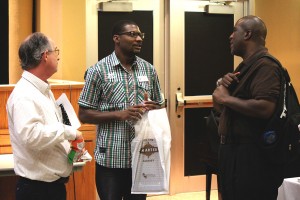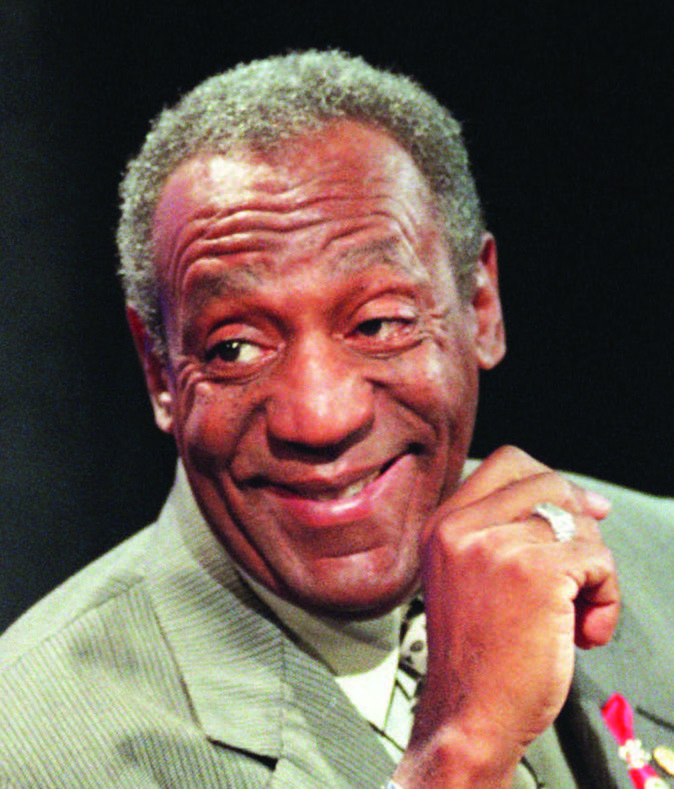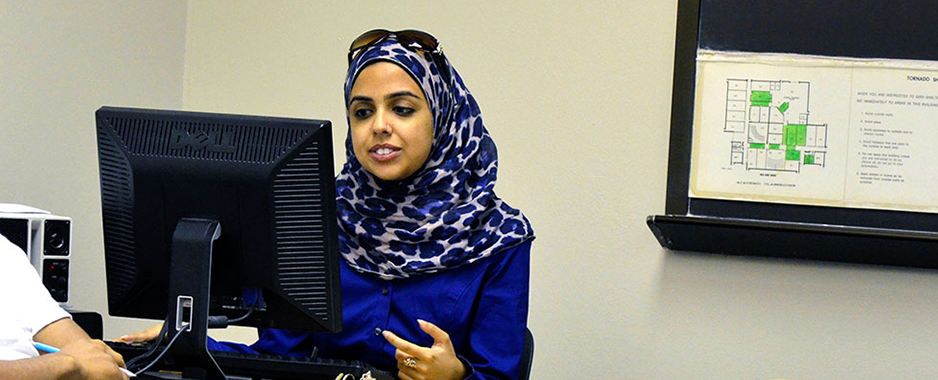By Matt Fulkerson/reporter

Since developing skills as an academic writer is a necessity, being unable to express ideas in a clear and organized manner can be a major roadblock toward success, a SE English instructor said Sept. 9.
Arlandis Jones conducted the College Writers Boot Camp about the importance of practicing academic writing skills to fully express thoughts and display understanding of a subject.
“Writing in full, complete sentences is the biggest deficiency,” he said in response to the issues he most commonly sees in student papers.
Slang, jargon and colloquialisms should never be part of a student’s academic writing, Jones said.
“I’m hoping to learn some good skills in developing a paper for school and work,” said Delmi Rivas, a NE freshman who is beginning work on her first paper.
Rather than performing a straight lecture, Jones encouraged audience participation.
“If you don’t talk, you won’t get informed and you won’t know,” he said.
Jones began the evening with a discussion on proper grammar usage, stressing the importance of sentence structure and the use of phrases and clauses.
“These are some of the things you should know as a college student,” he said.
A major source of frustration for instructors appears when students do not write complete sentences, Jones said.
Jones said informal writing should not be used in academic writing. With the widespread use of social media, this style of informal writing has become common and is often a hard habit to break.
“We don’t want to write like we do on Facebook,” he said.
When writing their papers, Jones suggested students think about their work as they would a wedding and dress up their writing to showcase their ideas in the best light possible.
“You probably wouldn’t wear shorts and flip-flops to a wedding,” he said.
Later in the evening, Jones offered some basic writing strategies for students, including details on properly citing their sources.
“Plagiarism is copying text, passages and ideas without properly acknowledging the author,” he said. “This includes other students’ work. It also includes your own work.”
Jones explained that using a paper written for one class in another class is considered plagiarism and academically dishonest.
Another common form of plagiarism comes in the form of collusion.
“Collusion occurs when you’re taking too many ideas from other people and injecting them into your paper,” he said.
While using the thoughts and ideas of other writers to back up a thesis statement is important, students’ papers should be a discussion of the knowledge they have gained through their research.
“I definitely have a better understanding of plagiarism,” said Madison Obi, a first-year SE student. “I understand how I can get in trouble with plagiarism and avoid it.”
While academic writing does not come naturally for many students upon first entering college, it is a skill that can and should be learned by all, Jones said.
“A person can learn a lot about you, based on the way you write,” he said.
Through practicing academic writing, those skills will be improved, but Jones said it might be difficult at first.
“Practice makes perfect,” he said.

























